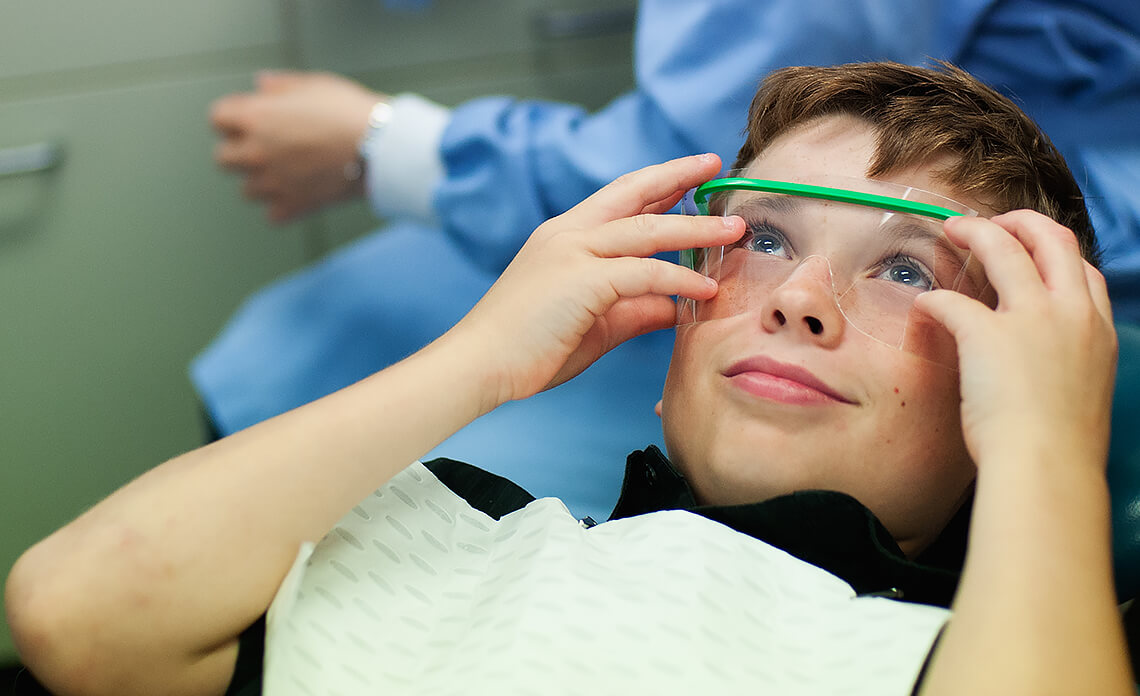
For a broken tooth, the best thing to do is to store the fragment in milk and seek a dentist as soon as possible. Irrespective of size, a broken fragment can often be rebonded to the remaining tooth, which will achieve the best colour and shape match.
If a tooth is knocked out, remain calm and locate the lost tooth. Avoid overhandling and only handle by the crown (not the roots). If the root is dirty, gently suck the tooth or rinse in milk before replanting it in the mouth immediately (a delay of more than 30mins could greatly jeopardize the prognosis of the tooth). Hold the tooth in place and seek a dentist immediately.
If you are unable to replant the tooth, keep it moist by putting the tooth in milk or place it in the mouth next to the cheek and seek dental treatment.
Dental toothwear is the loss of tooth structure through mechanical and/or chemical processes. It comprises abrasion, erosion, abfraction and attrition. Toothwear can lead to chipping, sensitivity and weakening of the tooth. If left undiagnosed, toothwear can have deleterious effects on function and aesthetics.
Abrasion is toothwear caused by friction with foreign substances. The most common cause is incorrect toothbrushing technique combined with the wrong type of toothbrush.
Erosion is caused by prolonged contact between tooth structure and external and internal acids. Such acids include gastric reflux, bulimia, carbonated beverages and citrus fruits.
Abfraction is tooth loss from tooth flexion. It is commonly presented as notching of the tooth around the gingival margins (gum line) and usually occurs in conjunction with erosion.
Attrition is toothwear from grinding and is the most difficult to treat.
Tobacco stains and yellowing of the teeth are some of the obvious effects of smoking on the mouth. More insidious effects include oral cancers.
There is a direct link between smoking and gum disease. Gum disease ranges from mild forms such as gingivitis (inflammation of the gums) to more detrimental forms of periodontitis with resultant bone loss. In severe cases, teeth require extraction due to severely compromised bone support.
It is a universal fact that smoking and/or tobacco use is a major risk factor for cancer and accounts for 75% of all oral cancers. The death rate of oral cancer is particularly high as the disease is often detected late.